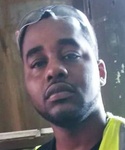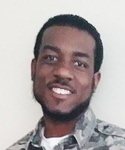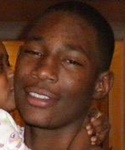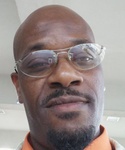Chicago Sun-Times
Less than 30 seconds.
That’s how long Cook County prosecutors said Chicago Police Officer Jason Van Dyke was on the scene before he repeatedly opened fire on a knife-wielding Laquan McDonald, who neither lunged toward Van Dyke nor uttered a word when he asked to drop the weapon.
Sixteen shots in 14 to 15 seconds—and for all but one or two of those seconds, McDonald was already lying wounded on the pavement that night, Oct. 20, 2014.
Van Dyke started shooting his semi-automatic pistol at the 17-year-old just six seconds after he got out the passenger side of his squad car on Pulaski Road and 41st Street, Assistant State’s Attorney William Delaney said. Van Dyke was standing 10 feet away from McDonald.
None of the other seven police officers who were there had fired a shot, Delaney said.
Van Dyke, 37, stood rigid at attention in front of Judge Donald Panarese Jr. on Tuesday as prosecutors detailed the allegations leading to the first-degree murder charge.
State’s Attorney Anita Alvarez admitted she timed the rare charge against an on-duty police office before the court-ordered release of the video to the public. Chicago Police released the video at 5:20 p.m. Tuesday.
Alvarez said she hoped the charges would tamp down the public response to the graphic images.
“Public safety is my No. 1 priority. We did not want the public to view this video without knowing this very important context that with these charges we are bringing a full measure of justice that this demands,” she said.
Alvarez said the video—which has no audio—is “chilling.”
“To watch a 17-year-old young man die in such a violent manner is so disturbing, and I have no doubt this will tear at the hearts of all Chicagoans,” she said.
Alvarez told reporters she was not “pressured” to delay or speed up the process in charging Van Dyke.
Police-involved shootings are “more complex and involved” than a gang-related shooting, she explained. Alvarez said she had been working with the FBI and federal prosecutors with the investigation but made up her mind to charge Van Dyke “weeks ago.”
Managers of a Burger King a block south of the shooting scene said they turned over surveillance video from the night of the shooting to police, but that the recordings were returned with several minutes missing.
Alvarez said it did not appear there was any tampering with the video, and that the camera angle would not have provided useful footage.
“It doesn’t appear that they’ve been tampered with, and it did not reveal any of that type of evidence,” Alvarez said. “However, the investigation will always be continuing.”
U.S. Attorney Zachary Fardon said in a statement that the federal investigation of the shooting “remains active and ongoing.”
McDonald’s killing might have been over in less than a minute on that fall evening more than a year ago, but the ramifications of the 16 shots Van Dyke fired from his service weapon moved into another stage as the city braced for reaction to the squad car dashcam video that shows McDonald jerking and spinning around before crashing to the ground.
Police Supt. Garry McCarthy said preparations were under way for demonstrations, much as the department did in the run-up to the NATO protests, which brought an influx of activists from around the country.
“My mantra is going to be the same one that it always is, which is really simple. We’re going to facilitate and protect people’s First Amendment rights to free speech and we’re going to be intolerant of criminal behavior,” McCarthy said.
Panarese, who had not seen the video, ordered Van Dyke held without bond pending a hearing on Monday when he sees the footage. The officer in protective custody in Cook County Jail.
The judge said the video was “pertinent” for a bond hearing.
Outside of court, Van Dyke’s attorney, Daniel Herbert, emphasized that the case “needs to be tried” in a courtroom, not “the streets, media or Facebook.”
“Thankfully, politicians will not be deciding the fate of my client in this case,” he said. “That will be either a judge or a jury.”
Herbert also expected backlash to the release of the video.
“People will make a judgment about the split-second actions of my client. The judgment made by individuals who view this tape from the comfort of their living room on their sofa, it’s not the same standard as the perspective of my client,” Herbert said.
“People dealing with this videotape will have the brilliance and benefit of 20-20 hindsight vision. However, the standard in this case is what was my client experiencing in the time that he made this split-second decision to fire,” he said.
Meanwhile, Van Dyke’s wife, Tiffany, established a GoFundMe page seeking online donations to help bail her husband out of jail.
More than $10,000 of the $80,000 sought in the online endeavor had been raised until administrators of the website abruptly pulled the plug on the fundraising effort around midday Tuesday.
GoFundMe Media director Kelsea Little explained in an email sent Tuesday afternoon that the fundraising effort violated company rules.
“GoFundMe does not accept campaigns for the defense or support of anyone alleged to be involved in criminal activity. All donations will be automatically refunded to the donors,” Little said.
Van Dyke, a father of two, turned himself in at the police headquarters early Tuesday. He later arrived to a crush of reporters at the Leighton Criminal Courthouse in a split pea-colored sweatshirt and jeans.
No other police officers attended the standing-room only bond hearing in support of Van Dyke.
Many of those who were there on the fateful night did not see the need to use force against McDonald as he ran south on Pulaski toward a Burger King restaurant, Delaney said.
Officers had responded to the scene after a call about a citizen holding a man who had been caught breaking into trucks and stealing radios, Delaney said.
The officers had radioed that the “guy is walking away with a knife in his hand.” The dispatcher also asked if anyone had a Taser.
McDonald, who had PCP in his system, had a “blank stare and glazed look in his eyes” before he was shot, prosecutors said. He never said anything to the officers or responded to them when they told him to put down his 3-inch knife. After the shots were fired, Van Dyke’s partner kicked the knife out of McDonald’s hand.
Van Dyke’s partner saw McDonald struggling to breathe and told Van Dyke to hold his fire as he prepared to reload his weapon, Delaney said.
At least 18 citizen complaints have been filed against Van Dyke in his 14-year career, but he was never disciplined, according to a University of Chicago database. Eight complaints alleged excessive force, two involving the use of a firearm in addition to the McDonald shooting. The database didn’t provide details about the incidents. Van Dyke has worked for the Chicago Police Department since 2001.
Also after the hearing, Fraternal Order of Police President Dean Angelo said he stands by Van Dyke.
“My job is to stand by the officers,” Angelo said, adding that while he doesn’t want to get inside Van Dyke’s head, there are times an officer has to use his weapon.
At a police graduation ceremony earlier Tuesday morning at Navy Pier, McCarthy did not mention McDonald or Van Dyke by name, but his remarks appeared to be crafted with them in mind.
“As police officers, we have the awesome responsibility under the United States Constitution to not only take away somebody’s freedom, but to also, where appropriate, take away somebody’s life—deadly physical force,” McCarthy told the group of police recruits, speaking from the stage at the Navy Pier ballroom. “Ladies and gentlemen, that is an awesome responsibility and it will be examined in retrospect over and over again.
“Every day your actions will be put through an examination like a microscope,” he said. “Your day-to-day responsibilities on this job represent and present you with many opportunities to demonstrate your character and courage, but in moments of confrontation, professionalism must prevail.”
McCarthy went on: “Take great care not to let circumstances surrounding chaotic events dictate your response. Instead, rely on your experience, skill, patience and training to achieve the desired resolution. And at the same time, never, ever, ever compromise your integrity. Because the most valuable attributes you have in this job are your word, your honor and that sacred trust that so many bestow upon you to keep you from harm. Once your integrity is compromised, it can never be regained.”
Operatives from the city, police and the Cook County state’s attorney’s office have been reaching out to ministers, community leaders and other members of the faith-based community, asking them to spread a message encouraging peaceful protests after the video was released.
In addition to Alvarez, Mayor Rahm Emanuel and McCarthy have come under intense criticism for permitting Van Dyke, who had been stripped of police authority, to continue to be assigned to paid desk duty and for keeping the video from the public until the “appropriate” time pending a result of an investigation.
On Tuesday, Alvarez defended the pace of her investigation, given the complexity of the case and the law involving police officers using deadly force.
On Saturday, the Rev. Jesse Jackson told the media he was hoping for a “police shakeup from top to bottom” after the release of the dashcam video, and he expressed anger Van Dyke was still getting paid “while McDonald is perishing in his grave” and called for Alvarez to step down for “failing” to charge him.
Emanuel reversed course after the judge’s decision Friday and said he would not seek to have the ruling overturned.
Before a wrongful death lawsuit was even filed by McDonald’s family, the Chicago City Council unanimously voted to approve a $5 million settlement with them earlier in the year.







